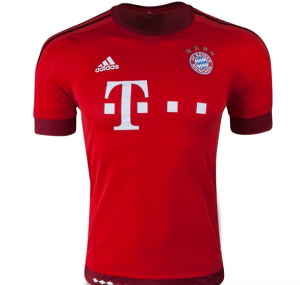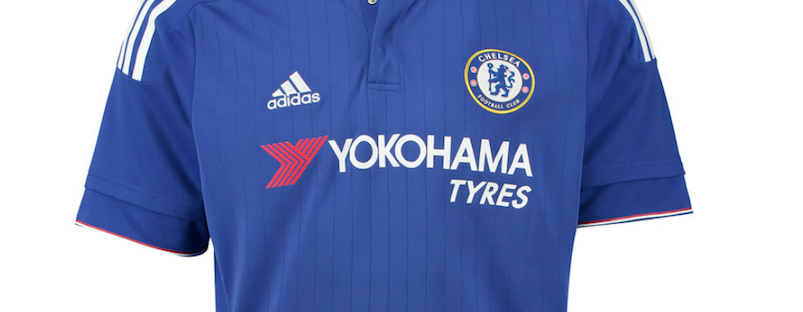
Breaking Down the Relationship between Brands and Teens
Today’s teenagers are uniquely positioned in the marketing world.
At what point do teams start selling their very name in homage of the all-mighty dollar?
| Albinko Hasic
Anybody that knows me knows that I’m in love with the beautiful game of football– known here in the U.S, of course, as soccer. As my father likes to say, I’m a fanatic, not a fan. Late nights spent streaming football matches on laggy Internet connections just to catch a glimpse of my favorite team were nothing to me. I cried tears of joy when Bosnia qualified for the World Cup for the first time since the country’s independence. I cursed my luck and almost broke my hand punching the wall when Barcelona’s Andrés Iniesta scored at Stamford Bridge to send Chelsea out of the Champions League.
 But as much as I love this game, one of the most frustrating aspects by far about being a football fan is the ever-expanding sponsorship ads plastered on the jerseys that the players wear, and subsequently, us fans, who purchase the jerseys at a premium rate. If I support Chelsea FC, why do I have to support Yokohama Tyres, Chelsea’s new Japanese auto tire manufacturing sponsor? Is that what all these clubs think of us fans? Walking, talking, advertising boards?
But as much as I love this game, one of the most frustrating aspects by far about being a football fan is the ever-expanding sponsorship ads plastered on the jerseys that the players wear, and subsequently, us fans, who purchase the jerseys at a premium rate. If I support Chelsea FC, why do I have to support Yokohama Tyres, Chelsea’s new Japanese auto tire manufacturing sponsor? Is that what all these clubs think of us fans? Walking, talking, advertising boards?
In a sense, of course I understand why they do it. A 2010 report claimed that England’s Premier League clubs earned a whopping $155 million by selling space on its jerseys.
Chelsea’s deal with Yokohama is worth a cool 40 million pounds per year through 2020. That is on top of the deal signed with Adidas in 2006 and extended in 2013 to the tune of 300 million pounds over ten years. The money is certainly there.
Companies want their name and their brand out there. They want it prominently displayed on the front of the jerseys that the players will wear as they score “magisterial golazos” on television sets tuned in across the world. It translates into brand recognition and revenue at the end of the day.
But clubs such as Chelsea do not need the money. Oil rich billionaire investor Roman Abramovich provides cash-o-plenty to Chelsea as its generous owner to spend on player acquisitions, wages, as well as to fund football operations. I understand clubs that may not be in such a fortuitous position may have to adopt certain ad practices, but why the big boys? Clubs such as Bayern Munchen, Real Madrid, Barcelona or the oil-money backed Manchester City and PSG don’t need it. Clubs with a long history such as Bayern Munchen should not have their logo demoted to the status of an afterthought in favor of the T-Mobile sticker.
 The practice of selling space on a football jersey started in the 1970s and has increased in popularity over the years. These days, some clubs (especially in France) even sell ad space on the back of the jerseys, and slap on smaller advertisements all over the club jerseys. Some clubs even sign deals with questionable businesses such as the Los Angeles Galaxy’s agreement with Herbalife.
The practice of selling space on a football jersey started in the 1970s and has increased in popularity over the years. These days, some clubs (especially in France) even sell ad space on the back of the jerseys, and slap on smaller advertisements all over the club jerseys. Some clubs even sign deals with questionable businesses such as the Los Angeles Galaxy’s agreement with Herbalife.
In an age where virtually everything surrounding sports and sporting events is sponsored in some way (Citi Field, Amway Center, Tostitos Super Bowl Half-Time Show, etc.) at what point do the teams start selling their very name in homage of the all-mighty dollar? (As some already have, I’m looking at you New York Red Bulls).
For now, I, along with my other football obsessed fans around the world can bear walking around with a corporate logo prominently displayed on my chest, as long as it means that the club patch lays over my heart. But at what point does it all go too far, and the greed of sports ventures becomes too much to take?
Today’s teenagers are uniquely positioned in the marketing world.
These brand collabs are far from fab.
And why the problem is even worse when those human viewers are kids.


